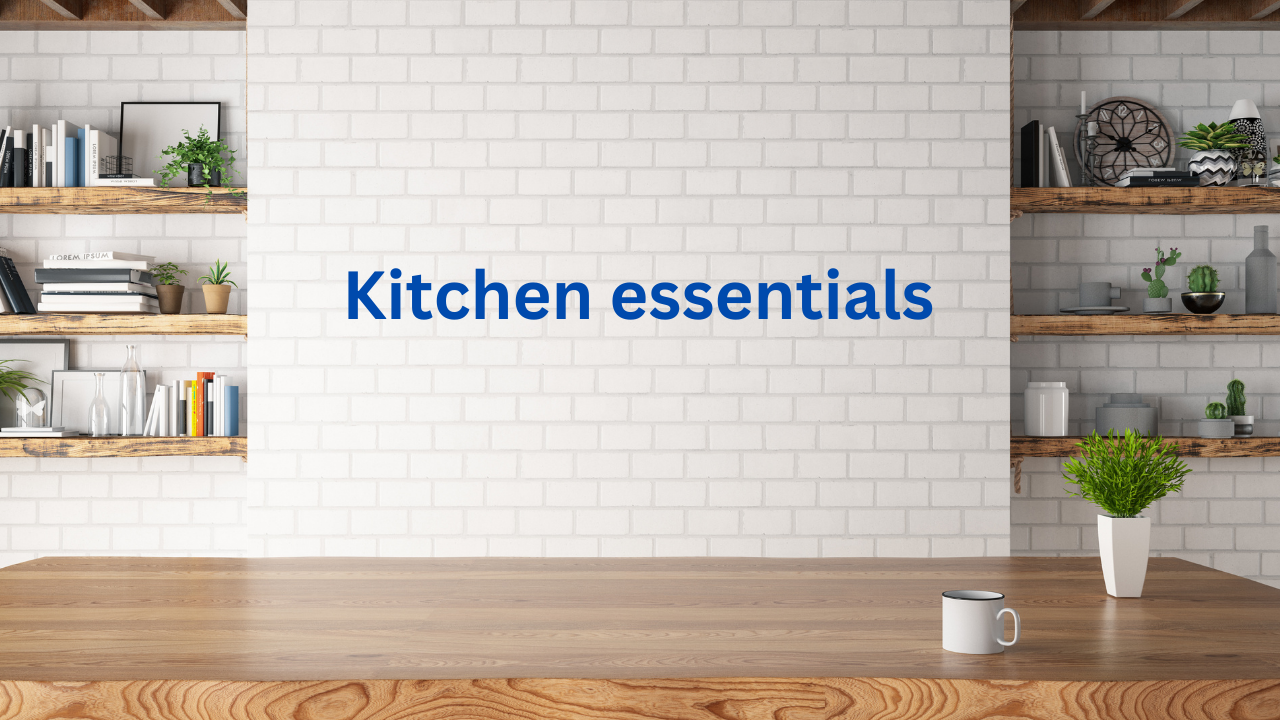College drop-off & habits that last

The sun has officially set on our school-age parenting chapter.
Everyone has always said it's a big transition, but nothing really prepares you for that moment: the wave goodbye, the quiet drive home, the mix of pride and ache in your chest.
It’s tender. It’s thrilling. It’s a little disorienting—I'm still astounded at our hearts capacity to feel so full and achy all at the same time?
We’re beyond proud of our daughter—excited, too, for the adventures ahead. And now, we’re stepping into our own “free-bird” chapter, which feels strange but full of possibility.
And, because the nurturing instinct doesn’t just switch off, here’s what brings me comfort: sending her off with a simple set of health and wellness “survival tactics”—tools and habits she can lean on, whether she’s eating out or navigating the kitchen by herself!
For those headed to European programs or college dorms without a dining hall, these tips are even more important.
But honestly? They’re equally helpful for any adult who’s keen to start making healthier choices!

Healthy habits worth packing:
-
Stay hydrated
Start the day with water—before coffee. It sharpens focus, steadies energy, and supports digestion.
And, of course, on nights out, alternating alcohol with water (and a tall glass before bed) makes the morning after far less painful. -
Always have easy, tasty, protein available
Buy a previously roast chicken, and/or keep high-quality canned fish in your cupboard (and, yes, there are so many options these days compared to the 'cat-food' tuna that was available back in my college days!). Patagonia Provisions is one of my staple go-tos.
Keeping protein on-hand makes it simple to pull together a balanced meal, even on the busiest days. -
Stock your freezer smartly
Frozen spinach, broccoli, peas, and cauliflower are your best friends. Toss them into soups, curries, scrambles, or grain bowls to instantly boost fiber and nutrients, as well as visual appeal.
Keep a loaf of whole-grain bread in the freezer, too—perfect for avocado toast or a base for eggs or leftovers. -
Avoid all the artificial stuff
Artificial flavors, colors, and sweeteners might seem harmless, but they hijack your taste buds and set you up to crave more sweet and hyper-flavored foods. The only real “winner” in that game is the manufacturer. Stick with real, whole foods to keep cravings in check and meals satisfying. -
Cook once, eat twice (or more)
If you’re making the effort to cook, always make a little extra. Doubling up on roasted vegetables, soups, or a stir-fry means lunch or dinner tomorrow is already halfway done—without falling into the dreaded “turkey chili for days” trap. -
Load up on veggies first
Whether it’s the salad bar in the local grocery store or a bag of frozen broccoli in your apartment, aim to fill at least half your plate with colorful veggies. They keep you full, steady your energy, help keep you regular, and ultimately support everything from focus to recovery. -
Move after meals
Walk to class, take the stairs, or even have a quick kitchen dance break. Just a few minutes of movement after eating helps regulate blood sugar and boosts energy. -
Stress less, your way
College life can be a pressure cooker, and stress management is just as important as nutrition.
Meditation is magic (literally), but I realize not all teenagers/young adults will be open to it, so it's even more important to find your own way to reset.-
Take a quick walk outside—even if it's raining. A change of scenery and some fresh air can shift your perspective fast.
-
Listen to music that makes you feel good.
-
Call or text someone who makes you laugh.
-
And remember: while we can’t control everything that happens, we do get to choose how we respond.
It’s not about being a Pollyanna—it’s about remembering the quiet power you have to reframe tough moments.
-

Kitchen essentials for first-time cooks
Must-haves:
-
A couple of good knives—a carving knife for slicing and a paring knife for smaller prep jobs
-
A good vegetable peeler
-
A grater for veggies, cheese or citrus zest
-
A sieve or colander—for rinsing vegetables or draining pasta
-
Wooden spoons, and spatula for stirring and sautéing
- Measuring jug, cups & spoons
-
Large mixing bowls for prepping or tossing salads
-
A few basic pots and pans (many student accommodations provide these, but double-check)—and make sure at least one pot has a tight-fitting lid for steaming vegetables
-
A good non-stick ceramic frying pan (you can find one for around $20)—perfect for eggs, quick sautés, or reheating leftovers
-
Glass-lock containers for storing, freezing, and reheating food safely
And, great-to-haves (if space and budget allow):
-
A high-powered blender—for smoothies, soups, or sauces
-
A ceramic air fryer—for easy, healthy roasting without needing an oven

Small habits, big impact—for them and for us
These tips aren’t about perfection. It's about building small, steady habits and having the right tools so they can eat well, think clearly, and bounce back quickly—whether that’s from an all-nighter, a brutal exam, or a weekend trip.
And for us parents? These same tactics keep us grounded in our own “new chapter.”
Drink your water, double the recipe when you cook, keep your freezer stocked with basics, and take that after-dinner walk—even if it’s pacing the airport terminal on the way home from drop-off!
Because it’s the little things—one glass of water, one balanced meal, one intentional pause—that keep us steady, healthy, and ready for whatever is next.


